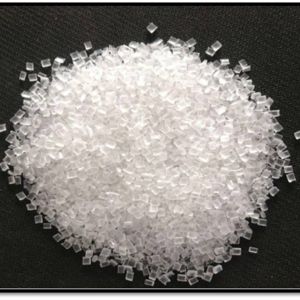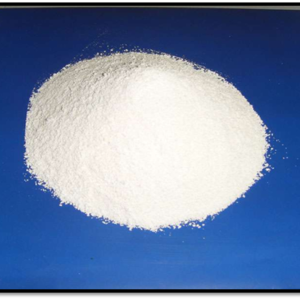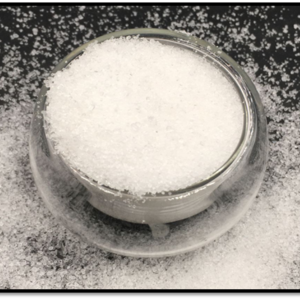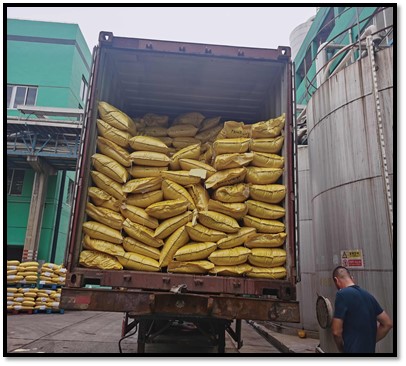1. What is Ammonium Sulfate?
Ammonium sulfate is an inorganic salt formed by combining sulfuric acid and two equivalents of ammonia. It is an Industrial Chemical with a variety of commercial applications.

Ammonium sulfate
2. What is Ammonium Sulfate used for?
Ammonium sulfate is a highly efficient chemical compound with numerous commercial applications.
- In alkaline soils, ammonium sulfate is commonly used as a fertilizer to improve the soil’s ph balance and provide nitrogen to plants.
- It’s a spray for water-soluble insecticides, herbicides, and fungicides in agriculture.
- It’s employed in the precipitation method of protein purification.
- It is used as a food additive since it is generally considered safe and is highly beneficial in reducing acidity in flours and bread.
- It’s a disinfectant used in the treatment of drinking water.
- It is also utilized to make other ammonium salts, such as ammonium persulfate.
- It’s a necessary component of many vaccines.
- In sulfur NMR spectroscopy, it is used as an external standard.
- It’s also useful in flame-retardant formulations.
- It has been employed in aerial firefighting operations as well.
- It has also been widely utilized as a wood preservative.
3. What is the Chemical Formula of Ammonium Sulfate?
The chemical formula of Ammonium sulfate is (NH4)2SO4.
4. Is Ammonium Sulfate harmful to life?
Since ammonium sulfate is potentially hazardous to both humans and the environment, it must be used with caution. If inhaled, it can cause severe irritation and inflammation of the respiratory tract. Eating or drinking ammonium sulfate will cause gastrointestinal irritation such as nausea, vomiting, and diarrhea, but it is not toxic except when consumed in excessive amounts.
5. Where is Ammonium Sulfate found? What is the appearance of Ammonium Sulfate?
Ammonium sulfate occurs naturally as a rare mineral in volcanic fumaroles and as a byproduct of coal fires in some dumps. It is produced industrially by combining ammonia and sulfuric acid. It is composed of 21% nitrogen and 24% sulfur.
Ammonium sulfate appears as fine white hygroscopic granules or crystals with no smell.

Ammonium sulfate
6. What are the Hazardous effects of Ammonium Sulfate?
Ammonium sulfate induces irritation, redness, itching, and pain when it comes into contact with the skin or eyes. It’s also a neurotoxic, which can cause confusion and behavioral problems. Inhalation and contact with ammonium sulfate should be avoided to the greatest extent possible.
7. What are precautionary measures necessary to be taken to handle Ammonium Sulfate?
To avoid unintended consequences, this chemical’s storage and disposal must be carefully planned. When working with this chemical, it is critical to follow safe industrial hygiene standards and to wear protective equipment at all times.

Precaution measures of Ammonium sulfate
8. What will happen if Ammonium Sulfate is heated?
Heating ammonium sulfate at a temperature of 250°C results in ammonium bisulfate. Higher temperatures cause decomposition into ammonia, nitrogen, sulfur dioxide, and water.
9. Is Ammonium Sulfate a soluble compound?
Ammonium sulfate is hygroscopic. It dissolves readily in water but not in alcohol, acetone, or ether.
10. Where can I buy Ammonium Sulfate?
If you require bulk quantities of this chemical, it is available to be shipped in 25kg, 50kg, and 1000kg woven bags. Camachem has been directly shipping Ammonium sulfate from China to the rest of the world for over a decade.

Ammonium sulfate Packaging
11. How much does Ammonium Sulfate cost?
The price of Ammonium sulfate is affected by various factors including the cost of raw materials used in the manufacturing process. The estimated cost per tonne is $200.00.

Ammonium sulfate transport
12. What is the PH of Ammonium Sulfate?
Ammonium sulfate is an acidic salt since it is made up of a strong acid and a weak base. As a result, a 0.1 M solution has a pH of 5.5.
13. Is Ammonium Sulfate an electrolyte compound?
When dissolved in water, ammonium sulfate dissociates into positive ammonium ions and negative sulfate ions, making it a strong electrolyte. As a result, it is an excellent conductor of electricity.
14. Can Ammonium Sulfate go down the drain?
Because it acts as a fertilizer, ammonium sulfate is permitted for drain disposal. However, draining an excessive amount of water at once may harm the land and water, thus caution should be exercised when draining.
15. What is the difference between Ammonium Sulfate and sodium sulfate?
Even though both ammonium sulfate and sodium sulfate are inorganic substances, their chemical and physical characteristics are quite different. Ammonium sulfate has a harsh, unpleasant odor, whereas sodium sulfate is odorless.

Leave a comment